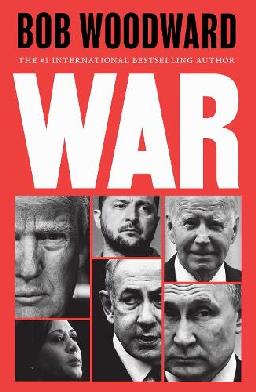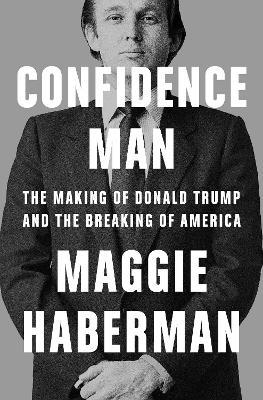Like others in a sold-out crowd in the Tautoru / TSB Space at Tūranga, I found myself eager to hear about “What Just Happened?” in the US Election of November 2024. I was lucky again to find myself at a WORD Christchurch event to report on an engaging conversation with University of Canterbury’s Head of Humanities Peter Field and American Studies academic Maureen Montgomery.
Introduced by MC Kiran Dass, who referred to the audience as the “select die-hard political junkies of Ōtautahi” (guilty), Maureen made the great general comment about how the US election was “quite a momentous experience...to watch things as they transpire” as it happened – as it was even from all the way across the Pacific.
Maureen asked Peter the first big question - why did 71 million voters overlook all of Trump’s many character flaws and laundry list of actions, which would normally be “fatal”? Peter said that Americans have a choice between two candidates/parties, and the majority of voters chose the lesser of two evils as they saw it. But maybe the premise of the question was wrong. Maybe another candidate than Trump would not have won, or in the same way, and that Trump was an actual preference on election day.
On the flipside, Peter asked Maureen why then did Kamala Harris fail to win? Maureen started by saying that she was not set up to succeed as vice-president or Biden’s pick. Biden’s deliberate choice of a non-white woman left her open to the accusations of her being a ‘politically correct’ choice, and that Harris becoming the nominee so close to the election hampered her – she was not selected through the primary and had no possibility of competing with and besting other candidates. Her claim to be a ‘change candidate’ was undercut by her being a part of the incumbent administration, and her campaign placed too much emphasis on Trump as a threat to democracy – ignoring the real desire for change and how for many people, American democracy has not been working well.
Peter noted some important good news – that millions of Americans went to vote, despite a system that reduces turnout compared to our own, and that there was a clear and decisive result at the end of the night.
Though the intention was for audience questions at the end, both speakers were happy to answer audience questions as they came.
The first audience question was what did Peter mean when he said that voters "chose Trump”? His response was to explain the idea of negative reference, building from Thomas Hobbes’ idea that the basic motivations we have are love (or like) and hate, and that in politics dislike or hate is powerful. Voters were willing to risk the unknown over what they did know, and their willingness to do this was a failure of the Democratic Party. Maureen noted the deep disillusionment many Americans have with the political system, and that this system cannot keep on not delivering for so many Americans – even four more years of Trump might have a positive outcome here.
The next audience question was how the Democrats could lose with all the resources behind them? Peter replied stating this was good news – it was proof that one couldn’t buy an election in the end, and that while too much money in politics was a bad thing, it did not guarantee success. But it also spoke to something deeper – that the Democrats failed to spend money in the right ways and did not understand what many voters cared about, as those were people outside their bubbles.
In response to a question about Americans having a choice between normalcy vs. lies and conspiracies, Peter said that Americans did not feel this dichotomy, and that while we might not agree with their choice, we must understand what voters are saying and feeling. Maureen noted that many people were upset about issues close to home like cost of living or immigration, and that many people are not deeply politically engaged, tuning out much of the campaign.
An audience member commented on the urban/rural divide regardless of state, and Peter talked about how there are essentially always 40% of voters for each party and 20% who might choose one or the other, and that it was telling that all the swing states fell to Trump – that “it says something about us the elites who think they should run things”. Both this election and 2016 were results we might not have expected or liked.
On the question of what this result says about the role of sexism and racism in the US, Peter said that despite these being a part of US history and society, that the US is no different to any other place where these exist. Harris was ahead – did US voters suddenly change in the last 40 days, and that while sexism and racism did play a role, they always do. Maureen noted that Harris did not lean into these factors in her campaign and there was no simple answer, with Trump gaining votes among minorities - different voters are motivated by different factors and issues.
On a question on whether despite Trump’s win, was he an inhibitor for Republican success, Peter responded the opposite was true – Trump was not very Republican and people were equally mad at the Republicans, but in this election blamed the party in power, and that Trump represented disruption.
Peter asked Maureen about why Harris failed to take up the opportunity to make use of newer media – like appearing on the Joe Rogan podcast. Maureen thought that this showed some of the tone-deafness of the Harris campaign and their failure to understand the changing media landscape.
Peter noted 26 million views of Trump’s appearance on Joe Rogan, and how this represents a changing media landscape and how the lack of openness, dogma, and authoritarianism was closing down debate – when half of Americans think the other is so bad they cannot have a conversation with them, something is wrong. He drew on the ideas of Kant and how we should see humans as subjects, and the good and evil in every human. Treating groups as ‘other’ might make us feel better about ourselves, but this election was a lesson that we cannot simply write people off and give up on democracy.
An audience member questioned the danger of hindsight – would there have been violence if things had ended up the other way? Peter thought that the new administration did not have the answers to problems, but also that 2020 was an aberration both in voter numbers, delay and the violence of January 6. He sees the US as a flawed but great place – founded on the ideals of the Declaration of Independence even if living up to those ideals has been its great challenge.
The last audience question talked about the impact of Robert Kennedy Jr. Peter noted that his speech backing Trump was telling – he essentially said he disagreed with Trump on so many issues, but RFK Jr saw Trump as the best option on key issues for him.
Peter rounded out the night making some thought-provoking and important points – that we need dogmatism and skepticism both, and that this election hopefully told us this lesson - “that we [the elites] must be more honest with ourselves about us” and our failure to listen and hear. Maureen ended commenting that Peter was a person who challenges you and makes you think (as a former student of his, very true), and the importance of never accepting things as given.
It was a real shame the event had to end when it did as the audience seemed to have so many more questions, and with so many more interesting things to unpack. But there really was some provoking discussion and thoughts, and a real call to listen and hear perspectives outside our own lest we keep being shocked about what happens.
Read more
U.S politics
See more
- Visit the WORD Christchurch website
- Read our coverage of the WORD Christchurch Festival 2024
- Follow WORD's socials: Instagram / Facebook / X (formerly Twitter)







Add a comment to: US Election Lowdown: What Just Happened? WORD Christchurch